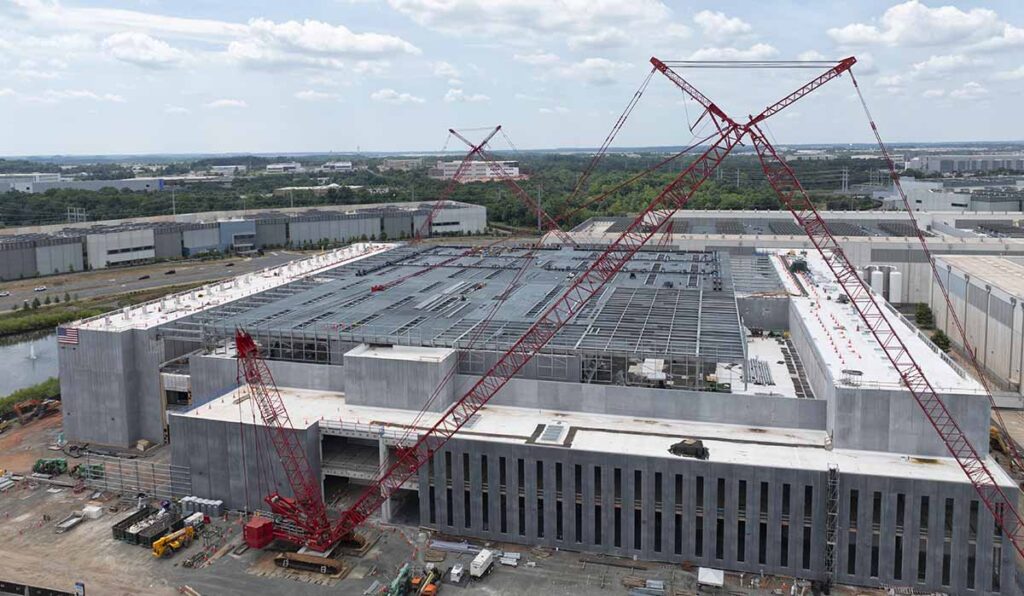
Electric cooperatives need smart, cross-government policies to help them serve growing demand from data centers and other large loads while keeping energy affordable and reliable for consumer-members, NRECA told federal regulators Nov. 21.
Co-ops’ ability to meet that demand “is vital to ensuring America wins the race to be the world’s leader in artificial intelligence,” the association said in separate comments to the Department of Energy and Federal Energy Regulatory Commission.
NRECA provided input on the DOE’s Speed-to-Power Initiative, which aims to accelerate the addition of electricity resources to serve large energy users.
The comments highlighted how co-ops are “at the heart of data center development,” often serving rural areas with large tracts of land that can accommodate those facilities. Co-ops also offer essential electric, water and fiber network infrastructure at much lower costs than suburban providers.
But the swift rise in demand from data centers and other large loads is challenging co-ops. Many generation and transmission co-ops serve annual peak loads of 1,000-2,000 megawatts. But co-ops are being approached to serve new loads of 500-1,000 MW each, with some fielding multiple requests.
Building new generation and transmission to meet that demand is difficult, with co-ops facing a host of permitting, planning and supply chain challenges. They’re also at risk of stranded investments if large loads do not come to fruition or fail to use as much electricity as expected.
NRECA called for policies that address those risks and to maintain co-op access to federal tax incentives and government funding for infrastructure projects.
“We urge a whole-of-government approach to ensure the federal regulations, policies and incentives are aligned to enable cooperatives and other utilities to make the investments needed to not only serve large loads at the scale and pace required for the U.S. to win the AI race, but to also protect affordability and reliability on the grid for all Americans,” NRECA told the DOE.
NRECA also filed comments Nov. 21 on a separate rulemaking at FERC to standardize the commission’s policies for connecting large loads to the grid. Such policies must support bulk power system reliability and respect the importance of local control to electric co-ops, the association said.
NRECA asked FERC not to intrude on state and local authority over retail electric sales to large loads. If FERC seeks new authority there, it should allow for regional flexibility on how to serve those customers, the comments stated.
The association also said large loads should “pay their own way” when connecting to the interstate transmission system and that other transmission customers should not be saddled with stranded costs—expenses that would ultimately be borne by co-op consumer-members.
“Other transmission customers should not bear stranded transmission costs for upgrades made to accommodate the interconnection of a large load that fails to materialize, does not operate as anticipated, or ceases operation,” NRECA told FERC.
Molly Christian is a staff writer for NRECA.